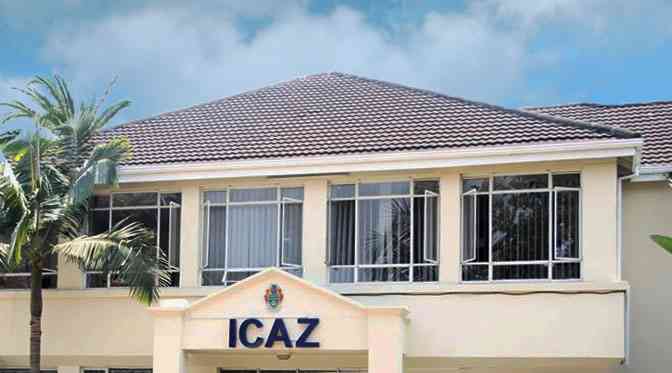
A WHILE back I wrote about handling ethical dilemmas, https://www.newsday.co.zw/theindependent/2022/02/25/handling-ethical-dilemmas which was focussing on how to handle a situation when one is asked to make decisions which are against the best interest of their organisation to serve personal interests of an individual with significant power. Finding oneself in such a situation is most unfortunate and will cost a lot.
I was inspired to write this article at the recent 2022 ICAZ Public Sector Convention held in Harare attended by Sithembiso Freeman Nomvalo the first black and longest-serving Accountant General of a democratic republic of South Africa and he spoke about ethics. He buttressed the importance of remaining steadfast without compromising one’s morals and ethics. Interestingly he quoted something which is similar to our own Public Finance Management Act (Chapter 22:19), section 14, which deals with unlawful instructions from a senior public official.
A practical challenge, given the time frame, is that it may be difficult to write to the Accountant General and the Auditor General to advise them that one has been given unlawful or detrimental instructions. A useful tip given to the participants was that one can send an enquiry to the accountant general and auditor general, as opposed to a full on strongly worded accusation aimed at one’s superior or a senior public official.
That being said, the article I am penning today is closely related to the issues raised above but this time I am focusing on what to do when one stumbles upon controversial information. I am specifically referring to making a discovery of malicious behaviour within the organisation by either a subordinate, a peer or a superior. This does not only affect finance professionals but could affect other departments, such as an officer in the civil engineering department discovering that a fraction of the cement being procured for a project is being diverted, with the person responsible manipulating the mix ratios of the concrete or mortar being produced. It could be a manager who is taking kickbacks, deliberately accepting inadequate quantities of goods and so on. More often than not, it is the officials in the finance department that make such discoveries since all transactions will inevitably pass through their desk.
Such information can be a burden for the person who has been, depending on which side you are on, fortunate or unfortunate enough to make the discovery. The question is always then, to report or not? A lot of considerations need to be made before making a decision. An ethical person is likely to be appalled by the behaviour of the unscrupulous co-worker.
Again, I am specific to a co-worker, because if it is a third party like a supplier, working without an internal person it will be straightforward as internal control mechanisms will just need to be jolted into action to close the loophole. The complexity comes in when the internal officials are fully aware and are benefitting at the expense of the whole organisation. The level of the internal officials is of the utmost importance because it will determine the level of the threat that one can face. In simple terms, it is about how dangerous the person that needs to be reported is.
People find it easy to rationalise theft from juristic persons like companies because there are layers between the stakeholders impacted by the theft and the company itself. The unfortunate bit which is overlooked is that the employees and their families will ultimately suffer as the organisation is prepared to take care of its members of staff. Profitability will be negatively impacted as will cash flows, resulting in delayed or lower salaries, which translates to a lower standard of life for all employees and their dependents. Other stakeholders such as suppliers, lenders, banks and so on are also indirectly affected. I stress this point in a bid to hammer the importance of ensuring that there is a stop to the unethical behaviour which the fortunate or unfortunate person would have discovered in their organisation.
Having established above that it is paramount that unethical behaviour be halted, I wish to continue on from the point around the level of the perpetrator. For a subordinate, one can easily deal with the issue using the normal policies and procedures. Even if they are not a direct subordinate there are structures in place to follow. The only concern is around hidden alliances, therefore reviewing the possibility of the perpetrator being a mere pawn controlled by a larger hand. Existence of unseen links will complicate the response a bit, but otherwise for subordinates it should be fairly straightforward.
- Zim headed for a political dead heat in 2023
- Record breaker Mpofu revisits difficult upbringing
- Tendo Electronics eyes Africa after TelOne deal
- Record breaker Mpofu revisits difficult upbringing
Keep Reading
Things get slightly more exciting if a peer is the one on the wrong side of our principles. An astute colleague who is the second person who was also instrumental in inspiring this piece spoke about how they would literally call in their peer or just knock on their door to confront them. Whilst of course watching out for unnecessary conflict, my colleague would pretty much demand that this peer comes clean and owns up to their wrong doing formally to the employer. I think it is an interesting approach, but my view is one should assess the situation, but the end result should again be ending the unethical behaviour.
Having discussed the two scenarios above, a third option is when the perpetrator is a senior and powerful person. Or the subordinate or peer has significant backing from powerful figures. This is when it gets extremely complex. Coming forward and confronting the official is not a practical option. There can be a threat on one’s person or their employment. It is at such a point when one really needs to ask themselves what they stand for. In a perfect world it would be simply highlighting the observation, producing the evidence or pointing the investigators in the right direction and all is resolved.
In reality though, a bit of tact is required. One thinks of anonymous tip-off services, the Office of the Accountant General, the office of the Auditor General, a trusted board member, the police and other avenues to assist bring the matter forward. I was being told of a scenario where an unknown employee simply wrote down in great detail how fraud was being perpetrated by a senior official and deposited it in a suggestion box. It is certainly complex if one ever finds themselves in such a situation but is important to ask oneself what they believe in and stand for as they consider their options.
Mavengere is the technical director at the Institute of Chartered Accountants of Zimbabwe, which is the largest and longest standing PAO in Zimbabwe, having been established on January 11, 1918, and is a body corporate incorporated under the Chartered Accountants Act [Chapter 27:02]. — technical@icaz.org.zw or Twitter: @OwenMavengere.








